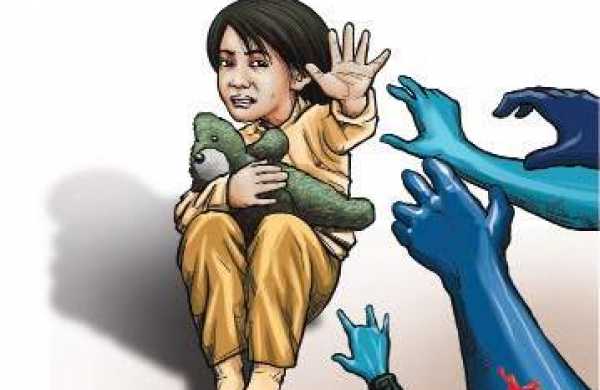Intro: With obscene images or videos are just clicks away from, children should be encouraged to inform their parents if they come across such content, says Ghasiram Panda, national manager of Ending Child Marriage programme, Action Aid.
According to latest statistics released by National Crime Records Bureau (NCRB) report, Odisha has registered the highest number of child pornography cases in the country in 2019 for the second consecutive year. While Odisha has witnessed 542 child pornography cases, Bihar stood second with 164 cases. Growing misuse of Internet for circulating child pornography and other obscene material is a matter of concern. Without exaggeration, it can be said that children who have been sexually abused often face severe and long-term psychological consequences. On International Day of Girl Child, Sunday POST speaks to a few child rights activists to ascertain the reason behind the surge in such cases.
Namrata Chadha, a former member of the State Commission for Women and Juvenile Justice Board, says, “Using a child for sexual activity and recording the act is a heinous crime. It is surprising to learn that Odisha is recording highest number of child pornography cases in the country. Though Bihar stood second, the number of cases is much less than that of Odisha. Now-a-days, everyone has access to the Internet but most people do not know the consequences of committing cyber crime. The videos engaging children in sexual activities are increasing due to their demand. In the name of friendship or promising the victim to marry, an accused makes such videos without her knowledge. But it’s an organised crime because a racket is involved in it. The accused make money by selling them online. On the other hand, victims are so innocent that they do not realise how they were exploited. This is high time the government framed strategies to curb the menace. And culprits should be booked under POCSO Act and given stringent punishment.”
Ghasiram Panda, national manager of Ending Child Marriage programme, Action Aid, India, says, “We should see the positive side of the report which claims Odisha has registered highest numbers in child pornography cases. I believe it is because Odisha has not suppressed any cyber crime complaints and registered almost all the cases unlike other states. I feel more restrictions should be imposed on easy access of pornographic sites to the Internet users. There should be some regulations. For example, the viewers of porn sites should submit their personal details before watching the content. In adolescence, youngsters do not know what to watch and what not to. Parents have to be friends of their children not guardians so that they can guide them on this. They should teach their wards about the adverse effect of watching online pornography. Obscene images or video clips are just a click away from smartphone users. Children should inform their parents if they come across such videos and images. In Odisha, parents find it difficult to talk to their children about sex. Children would stop taking interest in such videos once the parents start talking about the subject which is so far being treated as taboo.”
He further adds: “Lack of stringent policies on rights to privacy, content regulation and pornography is a major obstacle in this regard. Raising awareness on child sexual abuse and to stop it is a collective responsibility.”
Benudhara Senapati, director of Childline, says, “Bhubaneswar, home to a large number of engineering colleges, is set to become an IT hub in near future. Thousands of students get admissions into these institutions every year. When they stay away from their parents, they experiment with new things to battle homesickness. They get indulged in several types of cyber crime for recreational purposes. During lockdown cyber crime cases have been multiplied. Many youngsters became unemployed during lockdown. They started making such videos to earn money. Thirdly, girls under the age 18 are being trafficked from rural areas of West Bengal to Odisha every year. They are brought to be used in the making of obscene videos. Most importantly, talking about sex is still considered a taboo in our state. While sex education in schools is yet to become a reality, parents feel uncomfortable to discuss the topic with their children. These are few reasons for which child pornography cases are rising in our state.”
Rashmi Rekha Das, OP
